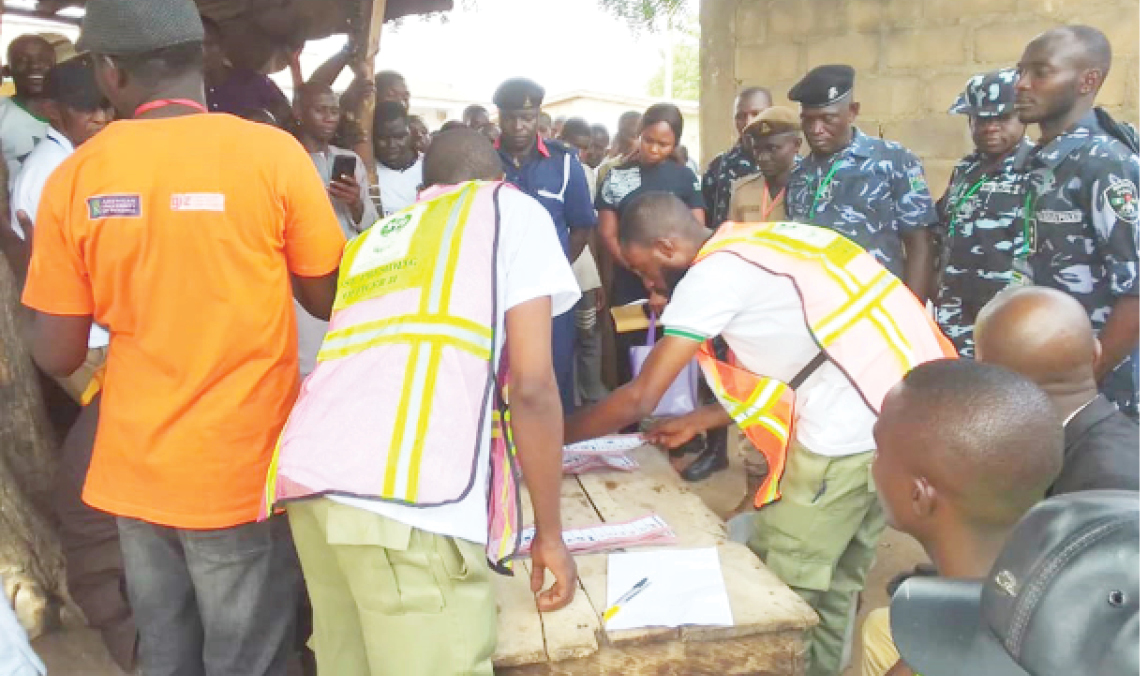CDD lists factors that’ll shape off-cycle elections
The Centre for Democracy and Development (CDD) has said Saturday’s governorship elections in Bayelsa, Imo and Kogi states is a form of referendum on new administration of President Bola Ahmed Tinubu. Director, CDD, Idayat Hassan, said this in a statement, on Wednesday . She also said that disinformation by political actors is a major threat […]

FILE PHOTO: INEC Officials sorting votes
The Centre for Democracy and Development (CDD) has said Saturday’s governorship elections in Bayelsa, Imo and Kogi states is a form of referendum on new administration of President Bola Ahmed Tinubu.
Director, CDD, Idayat Hassan, said this in a statement, on Wednesday .
She also said that disinformation by political actors is a major threat to participation on the elections, apart from identity politics, zonal consideration, violence and lack of inclusion which continue to influence electoral landscape in the country.
Also, in a detailed 25-page report titled: ‘Off-Cycle Elections in Bayelsa, Imo and Kogi: An Early Referendum’, the CDD noted that the November 11 poll holds a pivotal place in the country’s democratic process.
“The outcomes of these contests will significantly impact the political fortunes of the parties involved and lay the foundation for the upcoming general elections in 2027. The 2023 Nigerian general elections marked an important milestone in the country’s democratic journey, characterized by technological advancements, increased civil society participation, and identity-based divisions among candidates and parties.
“These factors influenced the election results and set the stage for the off-cycle governorship elections in Bayelsa, Imo, and Kogi,” Hassan said.
She said given the fact that the elections will be held approximately 120 days into the tenure of the federal new administration, they present a unique challenge for both the ruling party, led by President Bola Tinubu, and the opposition, including the People’s Democratic Party (PDP) and the Labour Party (LP).
She said, “The performances of the elected governors, including Diri in Bayelsa, Uzodinma in Imo, and Bello in Kogi, will be closely scrutinized, as these states experienced contentious and litigated general elections at the beginning of the year.”
She, however, lamented that a major concern about the November 11, off cycle elections is the role that misinformation, disinformation, and fake news are expected to play.
She said, “During field assessment visits, several election stakeholders expressed concerns about the role that political parties were playing in the information space around the elections. Most parties use influencers and youth mobilisers to spread disinformation campaigns about opposing parties and candidates.
“Groups are utilising shared platforms with election officials, party officials and media groups to try and reduce the likelihood of misinformation, disinformation, and fake news affecting the conduct of the elections. Some chieftains alluded to the fact that women were also unfairly targeted during such campaigns.”
Hassan also said that the Saturday’s elections will play a major role in shaping how younger Nigerians interact and embrace politics in the future, apart from an increased awareness at the lopsided gender imbalance among nominees for governor in these states and increased scrutiny in the run-up to the elections.
